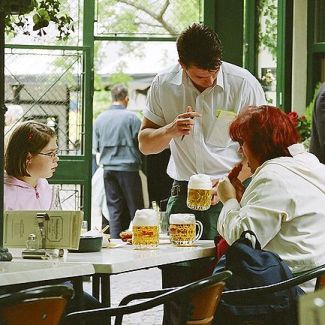A new working class of services

This paper attempts to demonstrate, at least in the Spanish case although it is anticipated that the results are generalizable to other developed countries, the existence of a new working-class of services that replaces, in quantitative and qualitative terms, the classic industrial working-class. Throughout the paper we consider the difficulties that this new working-class of services will have to initiate a process of collective bargaining in order to improve their working and living conditions.
The new working class of services will be defined by their precarious position in the labour market. It is composed by some type of workers which have a weak position in the labour market: young people, women, immigrants, workers with no or little qualifications, etc. Anyway, we consider that there is an extension of these positions of weakness in other groups of workers.
These workers will be occupied in certain types of services that we call manual services: activities that are subordinated to other activities with higher added value, activities where it is not easy to introduce technologies that improve the productivity of labour: food & accommodation, cleaning, care services, trade...Therefore, my paper is an analysis about the labour market but also a research about the social structure in developed countries. These analyses are divided into several steps in order to find out what changes have been made in working conditions between 1999 and 2008.
I will see this, on one hand, working with different statistical sources; and, on the other hand, working with the ECVT (Encuesta de Calidad de Vida en el Trabajo) in its editions of 1999 and 2008 in order to conduct a longitudinal analysis.
Some techniques were used to obtain the different groups of workers according to the working conditions they enjoy. It is also important the fieldwork. This fieldwork was based on in-depth interviews and documentary analysis of collective agreements in the food & accommodation services in the city of Barcelona. This sector has been considered one of the industries where the new working-class of services is mostly occupied.
The results of this fieldwork served to illustrate the trends that have been identified in statistical analyzes. It must be taken into account that this period has been an expansive period from the economic point of view, so it would be expected a general improvement of working conditions.
The research results, however, show that there is growth of the secondary segments of the labour market. There is also an increase of the complexity within these segments. These secondary segments are presented as a separate reality in labour markets. My research attempts to demonstrate that this is not only important in terms of labour market but also has social significance: it is appearing a new class with all their strengths and difficulties.
In fact, the identification of workers between them is difficult given the differences in the group of origin, job developed, specific conditions of work, size of the companies where they are working, etc. Therefore, this new working-class of services is nowadays a class in itself but not yet a class for itself, using classical terminology.


